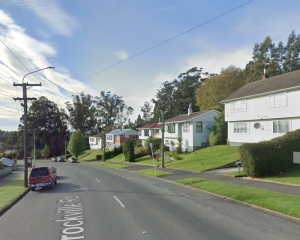The announcement Dunedin would not be used was made earlier today by Minister in charge of isolation facilities Megan Woods.

"They always said they would only stand up a managed isolation facility in Dunedin if they could do it safely," Mr Hawkins said.
"They came to the city, worked through various scenarios and decided they couldn’t.
"They could have forced it to work regardless in the interests of capacity over everything else — but they didn’t.
"And we should all welcome that approach to decision-making especially when the stakes are as high as they are."
Woods earlier thanked the Dunedin, Invercargill and Queenstown communities for their willingness to engage in discussions, but said setting up isolation facilities was complex and centres in the South would not be required for now.
There are 32 managed isolation facilities in New Zealand and the Government was not planning to increase that.
Air Commodore Darryn Webb said the aim was to have them at about 90% of maximum capacity.
Woods and Webb visited the South last week to assess the suitability of facilities.
Queenstown and Invercargill had already been ruled out at that point.
The minister added today that she did not envisage Dunedin being required.
Webb said the logistical challenges for Dunedin were too great.
Suspension of compassionate exemptions lifted
Webb also said exemptions for early leave from managed isolation on compassionate grounds was no longer suspended, and seven people had been granted early leave in the last week.
Seven people have been granted leave in the past week, Woods says.
Early leave would not be granted except in "exceptional" circumstances, Webb said.
"Every single one is quite unique and will be dealt with on its own merits. It's necessarily a high bar, and that sort of ratio matches the need to have public safety paramount," he said.
Webb said there had been 138 inquiries for early leave in the last week, and there had been about 50 actual applications of which seven were granted.
There was now an end-to-end system for those granted early leave, including medical support where necessary for transport, and strict conditions to manage the risk to public safety.
A new web application form would go live in the next fortnight, he said, so people wanting to apply for early leave would have more information before they decided to fly to New Zealand.
Each applicant filled out a health form so their risk to public health is assessed.
Woods said the 14-day isolation period was the most important line of defence.
Air Commodore Darren Webb said the national capacity for quarantine and managed isolation facilities was close to being exhausted.
How stretched are quarantine hotels?
She said the system linking passage to New Zealand to an available room would ensure that supply could meet future demand.
"We have a very clear idea of what our safe isolation facilities are, and we are matching demand."
She said there will be breathing space, for instance where a flight from Auckland to Christchurch could not take off and more people than expected had to be accommodated in Auckland.
Webb said he didn't want the system to be more than 90 percent full.
The national capacity was about 7000, Webb said, and that was the maximum that the country could deal with.
Woods said that meant about 15,000 people could return to New Zealand each month, accounting for those departing quarantine and managed isolation facilities.
Woods said she would have more to say about potential co-payments "very soon".
- additional reporting NZ Herald












